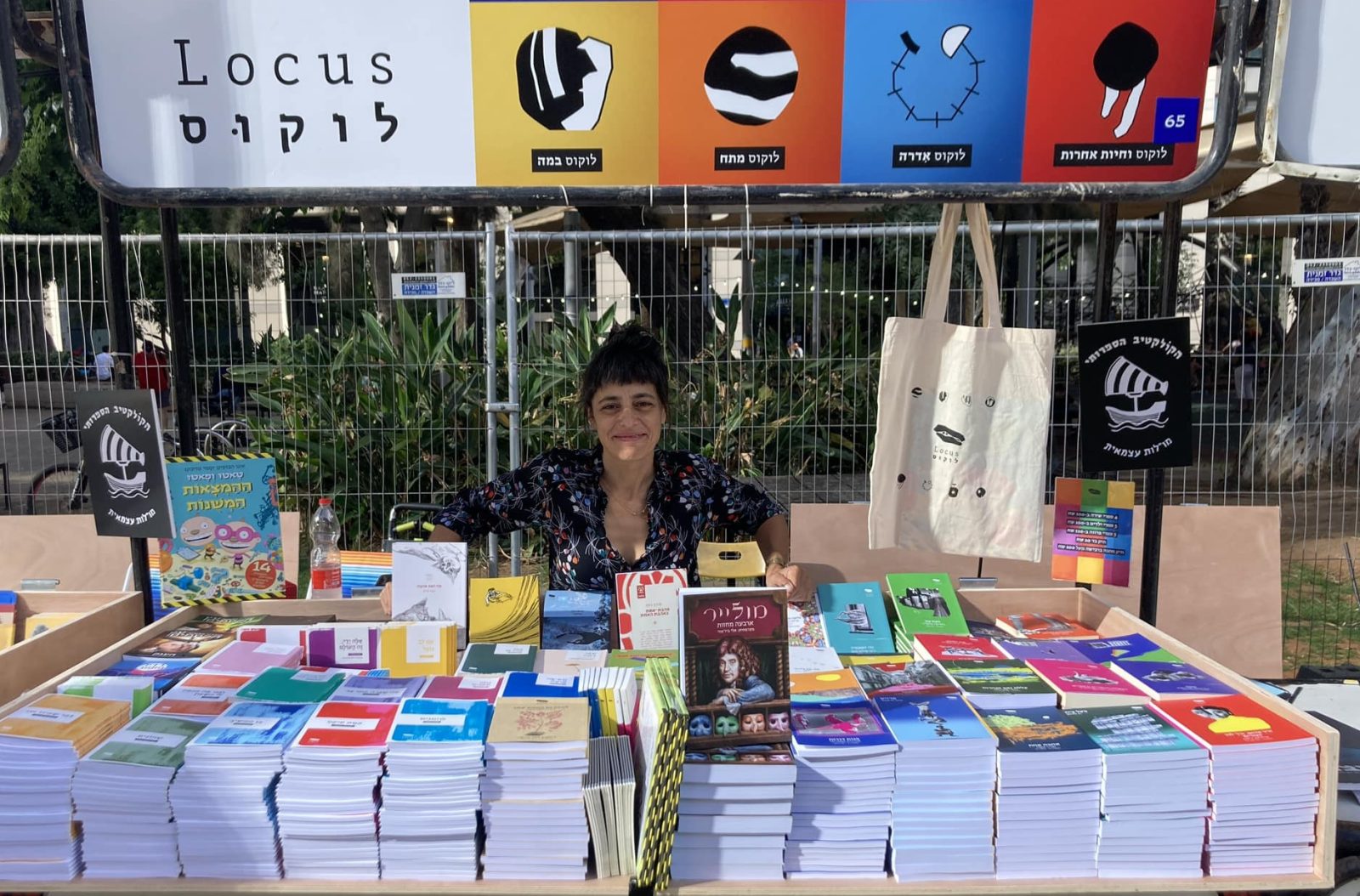BOOK FAIR – Locus, the power of the words: Hebrew characters and life in Italy

“Every book published is the result of a deliberate editorial choice but, at first, I couldn’t understand what the common thread was. Looking back, I found one: freedom. The characters and the authors of the book I have published always try to free themselves from something: may it be a system, an oppression or a regime. And they always do it through creativity.”
It’s with this awareness, gained through the years, that Shira Hefer tells of the trajectory of Locus, the independent publishing house that she founded in Israel in 2016 and that she now directs from Italy. A project born from her desire to transform her passion for translation into a cultural and political gesture.
The daughter of a diplomat, she was raised in different countries and learned nine languages. Hefer started her career path translating literature books for many big Israeli publishing houses. The titles that would arrive at her table would always follow a marketing strategy and didn’t interest her. “I would receive books that I had no desire in translating. I wanted to decide by myself what to put at the center of my work”.
She therefore decided to open her own publishing house. At first, together with an editor friend, then, when their paths parted, by herself. This is the story behind Locus, a publishing house with a specific line of work: collaborating only with independent libraries and publishing quality titles and to give voice to those who have different opinions. The Latin name recalls a space of freedom, a place where ideas, languages and visions meet.
One of the first books published by Locus was The Time: Night by the Russian writer Ljudmila Petrusevskaja. It’s set in a soviet kommunalka (common apartments) and it tells the story of a poet that finds comfort by writing in the middle of the night to survive the chaos of her family life, the lack of space and the weight of three generations living under the same roof.
Another fundamental title in the catalogue of Locus is Two Serious Ladies by Jane Bowles, the only novel written by one of the most brilliant and eccentric voices of the 20th century, as stated by Hefer. Two women leave their married life to find something undefinable and, maybe, precisely for this reason, authentic.
The critic and the public appreciated the choice, and Locus carved out its own space. Beyond looking at foreign voices that have been ignored by the Israeli market, the publishing house has started publishing contemporary Israeli authors too. For example, Tamar Weiss-Gabai, winner in her country of the Brenner Prize and translated in Italian (La metereologa, Giuntina).
Locus also aims to translate Arabic and Palestinian literature into Hebrew.. But it’s not that simple. “Many Palestinian authors don’t want to be published in Hebrew. Some as a form of protest, others for fear of the reaction they might get from their community, for fear of being isolated or heavily judged.” Sometimes is Hefer herself that says no, because the translations don’t convince her.
This didn’t happen with Bedouin writer Sheikha Helawy, originary of Haifa and regarded as one of the most important voices of Palestinian literature; Locus has published her collection The War Has a Big Nose.
Strongly critical of the current Israeli government, Hefer has been living in Italy for a year with her family, in Versilia, Tuscany.
“Life here is calmer. In Israel there’s too much noise: the politics, the crisis, the atrocities of the war, everything is tense and aggressive. Life in Tuscany has given me back concentration and motivation”. The relocation is only temporary and the work at the publishing house continues without breaks. There is a desire to better know the Italian literary landscape and to start new projects. For Hefer, culture, especially the written word, is the antidote for the violence she feels is growing in Israel and all around the world. “To use words means to negotiate, to listen, to learn and to be curious. It means to understand what hurts others, and to make yourself understood. This, is the power of language.”
d.r
